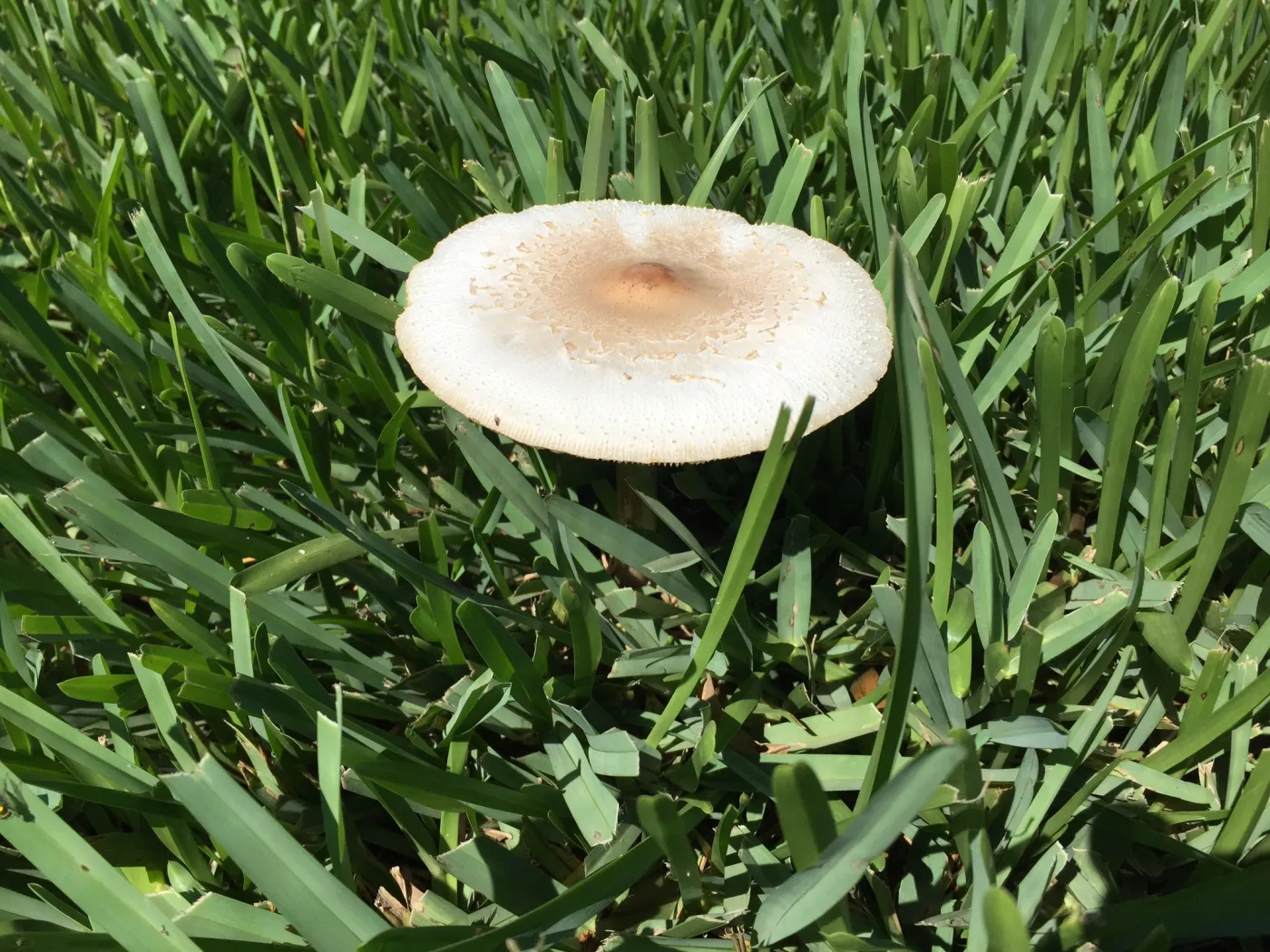Typically after a rain-filled week like we've just had, we will get a couple calls from concerned clients about why they are seeing mushrooms in their Gainesville lawn - and what they can do about them.First, let's start out by making sure we understand what mushrooms are and what they come from.
Mushrooms are a growth from active fungi that live naturally in your lawn. Usually, they just stay hidden breaking down organic material in your soil. Sometimes they are from underground wood, stumps, or other natural debris. Other times, they are from other organic material in the soil decomposing. However, when conditions are right, they will appear as unsightly light-colored growths in shaded areas of your lawn.
Sometimes, it's a good sign that they're in your lawn. Organic material is good for your soil, roots, and your landscape as a whole. Growing up on a cattle farm in Melrose, I learned there was one place mushrooms grew almost every time it rained, and it was in the most nutrient-rich fertilizer-like material you can imagine - cow manure. I know, not a pleasant thought and certainly not something you want in your lawn, but it is a good natural lawn fertilizer!
As always though, too much of a good thing can also be a bad thing - and in this case a frustrating one. There are a couple ways to help keep mushrooms out of your Gainesville lawn:
#1 Decrease Shade in Problem Areas
Since mushrooms like shade, prune back your tree canopies or overgrown shrubs. Extra sunshine helps keep mushrooms in check and keeps your lawn from getting other diseases as well. If you read our blog regularly, you'll remember that sunlight is the #1 need of every Gainesville lawn, and it just happens to also help with mushrooms, too.
#2 Avoid Compacted Soil
If your lawn has standing water or remains damp for long periods after a rain, your soil may be compacted. Aerating your Gainesville lawn can help improve soil compaction, which will, in turn, help decrease the moisture that encourages mushrooms. It also helps to increase the amount of oxygen that gets to the roots of your grass. If you have excess thatch in your lawn (over half an inch), you have a lot of organic material that absorbs moisture and acts as mushroom bait. Dethatching your lawn (if it's Zoysia, Bermuda or Centipede) can also help keep mushrooms away.
#3 Minimize the Effect of Old Stumps and Pets
If you have an area where a tree used to stand, even if the stump is gone, the dead roots underground may encourage mushroom growth. If the stump is still there, you can have it ground out. If it's gone, just keep the area well raked and aerated to improve drainage. It also helps to frequently clean up after your pet. Animal waste left on the lawn can also bring out mushrooms, just like cow manure can.
#4 Improve your lawns drainage
The basic cause of mushrooms is the mixture of water and organic material. If you cannot reduce the organic material in your lawn (most people cannot), then moving the water out of your lawn faster so that it can dry out is the only other way to reduce the equation. Installing a Gainesville Drainage system can be done in the likes of a french drain, swale, or even a catch basin. If this is something you need, we would be more than happy to help with this.
Lawn Damaging Fungi and Diseases also abound in times that mushrooms do - even though mushrooms do not damage the health of your lawn. Damp conditions can bring out Large Patch Fungus, Take-All Root rot, Grey Leaf Spot, Melting out, and Slime Mold are a few of the diseases that thrive in wet grass. The good news is these lawn diseases can be controlled by our Lawn Health and Disease Control Program.
If you need help with any of the above services - Tree Pruning, Lawn Aeration, Stump Grinding, Drainage Design and Installation, or our Lawn Health Program - don't hesitate to call our team at (352) 378-5296, or fill out the form at the top of the page. We look forward to hearing from you.


